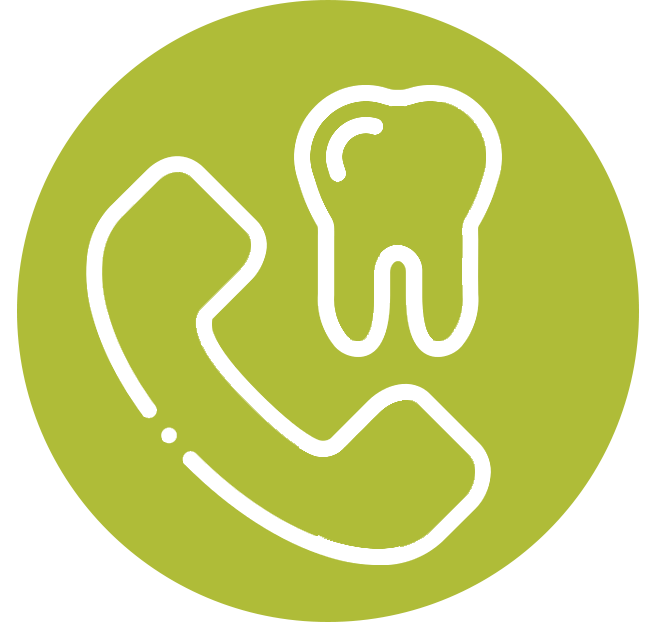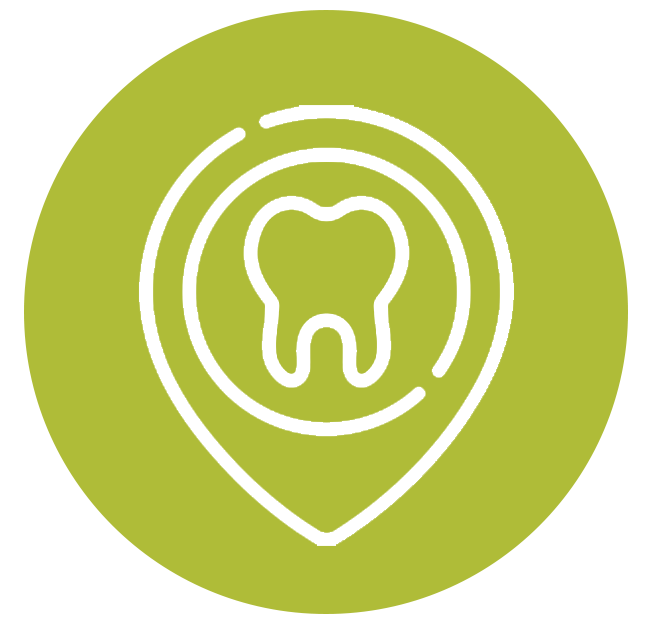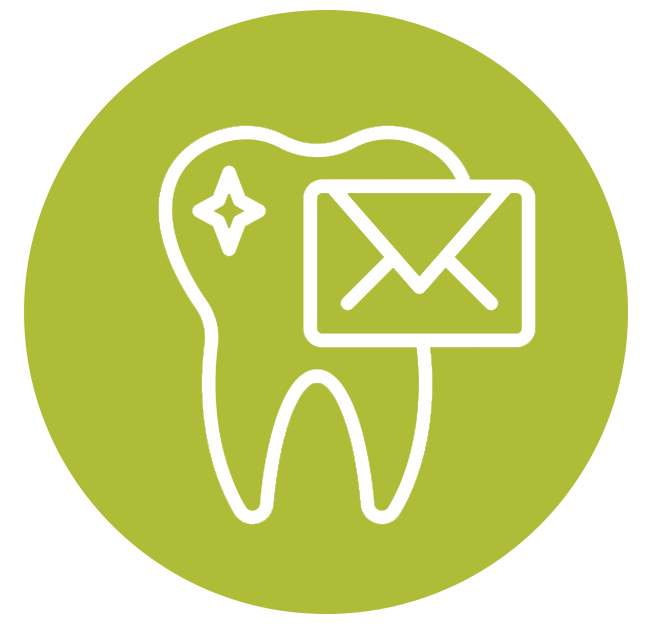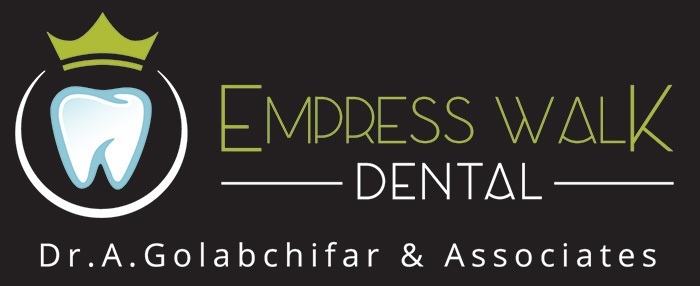Pregnancy brings so many changes, emotional, hormonal, and physical, and your oral health is no exception. It’s common for gums to swell, gums to bleed, or cavities to creep in during this time. If you’re eligible for the CDCP (Canadian Dental Care Plan), you may wonder: How does the CDCP work for pregnant women?
In this post, we’ll walk you through everything you should know about the CDCP for pregnant women, what’s covered, what special considerations to keep in mind, and how to apply. First, let’s start with he eligibility of pregnant women.
CDCP Eligibility for Pregnant Women
Before you can benefit, you need to know who qualifies. CDCP is a national dental benefit program in Canada designed to reduce cost barriers to dental care. Here’s what you should know about eligibility, and specifically, how pregnancy factors in (or doesn’t):
- General eligibility
To access CDCP benefits, one must be a Canadian resident, meet certain income thresholds, and not have access to dental coverage already (or have limited coverage). - Adjusted family net income cap
CDCP generally serves people whose adjusted family net income is under CAD $90,000. - No restriction based explicitly on pregnancy
Pregnancy itself is not a criterion for CDCP eligibility. In other words, being pregnant doesn’t guarantee access; rather, if you meet the general eligibility requirements (residency, income, and dental coverage constraints), you can use CDCP while pregnant. - Timing of eligibility
The CDCP is being rolled out gradually (phased enrollment) in many regions. That means even if you qualify now, the application or access may not be immediate, depending on your province or region.
As a pregnant woman, your eligibility under CDCP is the same as for others, but as we’ll see, there are special considerations in how you use the benefits during pregnancy.

What Dental Services Are Covered?
One big concern for expectant mothers is: “Will my check-ups, cleanings, perhaps even root canals, be covered?” Short answer: possibly, depending on the service, whether it requires preauthorization, etc. CDCP has a pretty broad set of covered services, but with caveats.
Below is a table summarizing major categories of dental services under CDCP and what is typically covered:
| Category | Examples of Services | Notes / Restrictions |
| Diagnostic & Preventive | Exams and cleanings (scaling), X-rays, fluoride, sealants | Generally covered without special approval in many cases. |
| Basic / Restorative | Fillings (temporary & permanent), pain relief, cavity treatment | Covered when recommended by the provider. |
| Endodontic | Root canals, infection control | Covered; some more complex treatments may require preauthorization. |
| Periodontal (gum) | Deep cleaning (below gumline), abscess treatment | Covered; some advanced work or surgery may need preapproval. |
| Major / Prosthodontic | Crowns, dentures, repairs, bridges | Some require preauthorization. Coverage is partial. |
| Oral Surgery | Extractions, surgical removals, cyst/tumor removal | Generally covered under CDCP. |
| Anesthesia / Sedation | Local sedation, general anesthesia (in some cases) | Basic sedation may be covered; deeper sedation often requires preauthorization. |
| Orthodontics | Braces, aligners | At present, orthodontics coverage is limited / not broadly included. |
Important Caveats about CDCP Coverage
For certain services, especially “major” restorative work, advanced periodontal treatment, and prosthodontics, the dentist/provider must submit a request and get approval before performing the service for it to be covered. If not approved, you may be asked to pay out of pocket.
Moreover, it’s important to note that CDCP won’t always pay 100%. Depending on your adjusted family net income, you might pay a portion (co-payment) of the service cost.
Read more on: Canada.ca
Not all dentists accept CDCP or are enrolled. Always check with your dental provider whether they are part of the CDCP program before treatment.
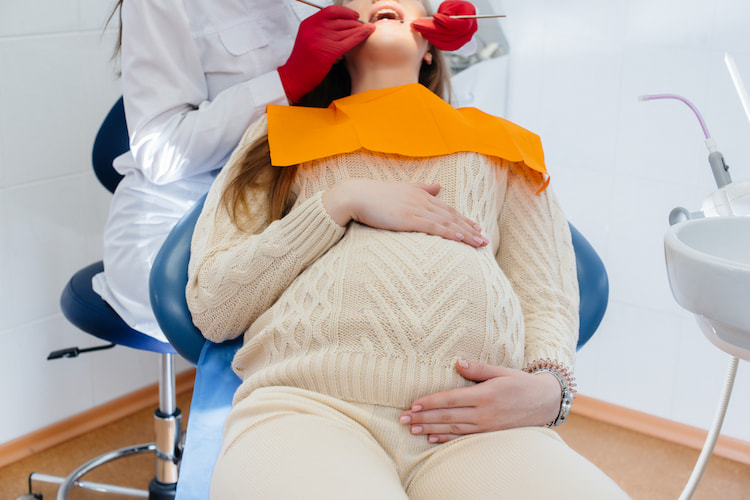
What Are the CDCP Benefits for Pregnant Women?
Pregnancy and oral health intersect in many ways: hormonal shifts, changes in saliva, increased acidity (especially if you experience morning sickness), more gum susceptibility, etc. These changes make regular oral care more important and riskier if neglected.
Here’s how CDCP benefits are especially relevant to pregnant women.
1. Reduces cost barriers at a critical time
Pregnant women often face many costs, prenatal care, nutrition, baby needs, etc. Having dental care covered (at least partially) by CDCP means you can maintain oral health without fearing the financial hit. This encourages timely treatment rather than delaying until after pregnancy, which can worsen problems.
2. Encourages preventive care
Routine cleanings, checkups, and preventive steps (like fluoride or sealants) can keep minor issues from flaring into painful, risky problems. CDCP’s coverage of those services makes it easier to stay on top of your dental health before things get worse.
3. Helps avoid infections that can affect pregnancy outcomes
Poor gum health and untreated oral infections have been linked, in some studies, to risks like preterm birth or low birth weight. Although causal relationships are still under investigation, it’s prudent to manage infections early. CDCP coverage opens the door to timely intervention.
Gum problems are common among pregnant women. Read more about the reason why they may bleed sometimes: Why Are My Gums Bleeding for No Reason?
4. Peace of mind and easier decision-making
It’s one less added worry in a time already full of life changes. Knowing you have a publicly backed dental plan gives you confidence to visit the dentist when needed, rather than avoid care out of cost anxiety.
5. Access to a broad range of services
Because CDCP spans from preventive to major services, many needs, from fillings to extractions, can be addressed under the same umbrella without having to switch insurances. That continuity is especially valuable when you might want to avoid switching plans mid-pregnancy.
Recommended article: Find the Best Family Dentist in North York
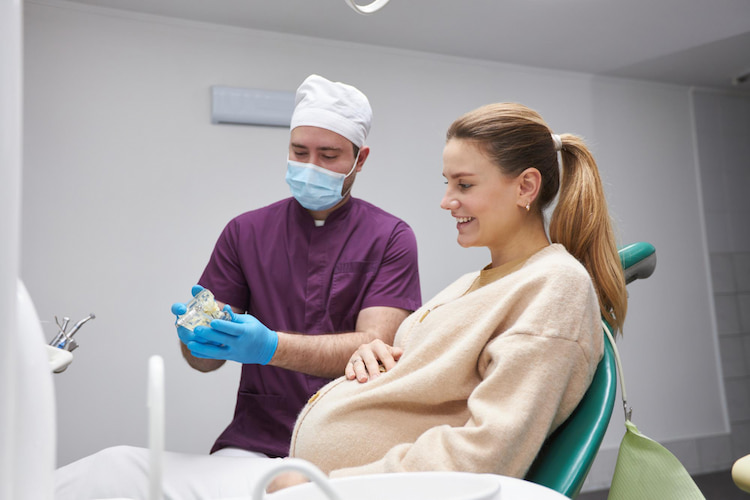
Are There Specific Considerations?
Yes, when you’re pregnant, dental care requires extra thought. Here are several important “fine print” or caveats:
- Timing of treatment
While most dental procedures are safe in pregnancy, the second trimester is often considered the “sweet spot” for non-emergency work because nausea is often lower, and the baby is stable.
- Local anesthesia & safety
Local anesthetics (without epinephrine or in moderate amounts) have been widely used in pregnant women and are not associated with increased risk when used properly.
- X-rays
Dental X-rays are considered quite safe during pregnancy when proper shielding (lead apron, thyroid collar) is used. The radiation dose to the fetus is minimal.
- Medication and antibiotics
Some antibiotics are safe; others are avoided. Pain relief typically relies on safer drugs like acetaminophen (paracetamol). NSAIDs (like ibuprofen) are generally avoided, especially in later pregnancy.
- Emergency vs deferrable work
If a treatment is elective and can wait (for example, a cosmetic veneer), your dentist and obstetrician may recommend delaying until after birth. But urgent treatments (infections, severe pain) should not be ignored.
- Communication among your care team
Let your dentist know you’re pregnant, at what stage, and share your obstetric medical history. If you have other medical conditions (like gestational diabetes, hypertension), these may influence treatment choices.
- Documentation & provider protocols
Because some CDCP services require preauthorization, make sure your dental provider submits the paperwork early and flags your pregnancy, so there’s no unfortunate surprise of denied coverage.
Schedule Your CDCP-Covered Check-Up!
If you’re pregnant and thinking of using CDCP for your dental care, contact us at Empress Walk Dental now. We accept CDCP patients and offer dental services through this beneficial program. We’re happy to guide you step by step.
How to Apply for the CDCP
Getting your CDCP benefits activated is a process. Here’s a step-by-step guide to help (but be sure to check your province’s specific rules):
- Check your eligibility (residency, income, insurance status)
- Visit the official CDCP site or provincial portal, fill out the application (often online)
- Submit required supporting documents, such as ID, proof of residency, and income statements
- Wait for approval & enrollment
- Choose a CDCP-accepting dental provider
- Get your treatment plan submitted (if preauthorization is needed)
- Receive care and (ideally) pay minimal or no charges
- Follow up and maintain records
Suggested article: How to Apply for CDCP: A Step-by-Step Guide

Discover How CDCP for Pregnant Women Can Protect Your Smile Today
Dental care is a crucial piece of your overall health, especially during pregnancy when hormonal and physiological changes can make your gums and teeth more vulnerable. The CDCP offers a valuable safety net, covering many routine, restorative, and even surgical procedures, which can significantly ease your financial burden and encourage timely oral care. That said, pregnant women should be aware of special considerations around timing, medications, and the need for preauthorization.
At Empress Walk Dental, we support expectant mothers, from helping you check if we’re part of your CDCP network, to advising on safe timing and protocols. Let us be your smile partner throughout this transformative journey.
Contact Empress Walk Dental today to schedule a prenatal oral health consultation! We also offer emergency dental care in North York to provide immediate treatment in case of an urgent issue.
FAQ
-
Is it safe to get dental treatment while pregnant under CDCP?
Yes, in most cases, dental treatment (cleanings, fillings, extractions) is considered safe during pregnancy, especially in the second trimester. Proper precautions (shielding for X-rays, safe anesthesia, consultation with an obstetrician) are used. Delaying needed treatment can sometimes be riskier than doing it.
-
Will CDCP cover all my dental costs, or will I pay something?
-
What if my dentist doesn’t accept CDCP?
If your dentist is not enrolled in CDCP, the program can’t reimburse them (and thus you can’t get the benefit). You’ll need to either find a CDCP-participating provider or ask your current dentist to become enrolled. It’s always wise to check before scheduling treatment.
-
Can I apply for CDCP in the middle of pregnancy?
Yes, you can apply at any time, as long as you satisfy the eligibility criteria. Enrollment processing can take time, so applying earlier is better. Once approved, you can use it even if the treatment is during pregnancy.
Leave a comment below with any questions or experiences you’d like to share; we’ll respond and help you feel confident about your dental health while expecting!



